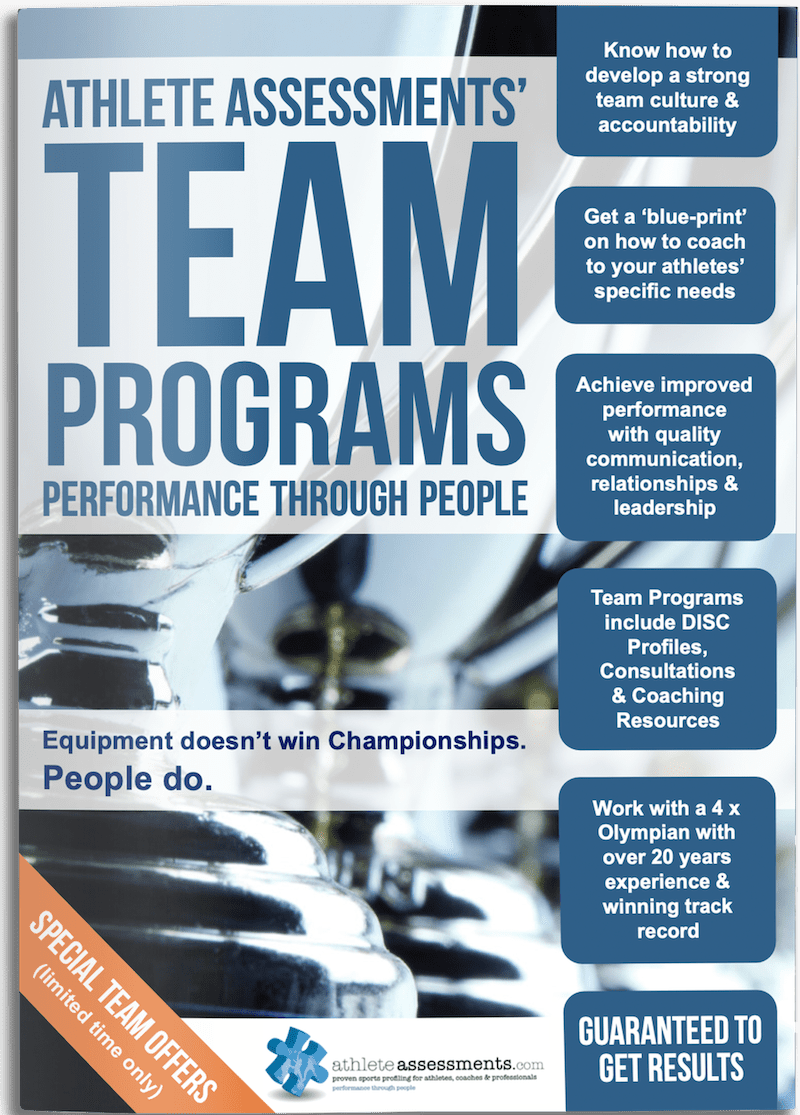Creating Healthy Competition in Sports Teams: 5 Minutes with Bo Hanson
RJ: All players have their own personal ambitions. If you’re a bench player, the natural thing is to become a starting player. I was just wondering how coaches manage that as far as making sure that bench players don’t undermine the starting players in training and during games as well?
Bo: I actually think that’s an excellent question because it’s a real world issue that teams that have a significant bench are going to have. One of the philosophies that we talk about when we’re trying to establish a quality foundation for any team is, and it’s one of the first things that we’ll speak of aside from our models, it’s how you be the best player for the team instead focusing on always being the best player on the team.
Personally myself, I recall my rowing days and in particular training for the 2004 Olympics which was the first time I was exposed to that philosophy by a man called John Eales. He was the captain of our (Australia’s) rugby team and is regarded in Australia as being one of the greatest sporting captains and leaders in the corporate world also. John said to me, because I was very much of the opinion that I just needed to focus on my performance and try and be the best athlete that I could be and every time that we went out to train I was competing against the other guys and they were competing and against so ultimately what we were doing was, whilst we were training hard, I personally found that very tiring. So John said to me, “Bo it’s not so much about you trying to be the best, it’s about how can you add value to someone else? And how can you be the best player for the team?”
That really resonated with me and completely changed my focus and my philosophy as to how I conducted myself. As opposed to being a bench player, I was always in the boat, I always made it a focus of my own – even if I was injured or fatigued – to never give up my seat because I know that once you give up your seat you give someone else an opportunity.
The reality is for players that are occupying those bench positions, it’s about the coach really focusing as a philosophy on how can everyone make a quality contribution to the team? And having that resonate around, that concept of being the best player for the team, not just the best player on the team.
I think if you create that, and you have that as a philosophy, other models that we’ve looked at in the past such as the Circle of Safety are fundamental. For example if you do create that safe environment where people are valued, where people feel like they’re making a contribution, whether it’s on the court or off the court, they know there are equally important ways to make contributions.
If the coach really does focus on that then people really do feel safe in their environment and you get a healthy competition in sports teams where “I’m pushing you, but I’m going with you.” I’m not trying to beat you as such. I think if you do that, if you get the Circle of Safety right as a concept what you’ll end up with is cooperation and trust. If you find that those two qualities are part of your team, then not only is your bench going to be contributing to the maximum, but the players on the court are going to feel massively supported by those bench players.
At Athlete Assessments, we’re experts in the people side of sport. We know sport and live high-performance every day. Our reputation and proven success at the elite level speaks for itself. The results that our National, Olympic, Professional and Collegiate team clients achieve directly reflects their focus on getting the people side right.
Looking to catch up?
You can watch all videos in the 5 Minutes with Bo Hanson series.
At Athlete Assessments we’re here to provide you with excellence in service and to help you be your best. If there is anything we can do to be of service, don’t hesitate to contact us.






